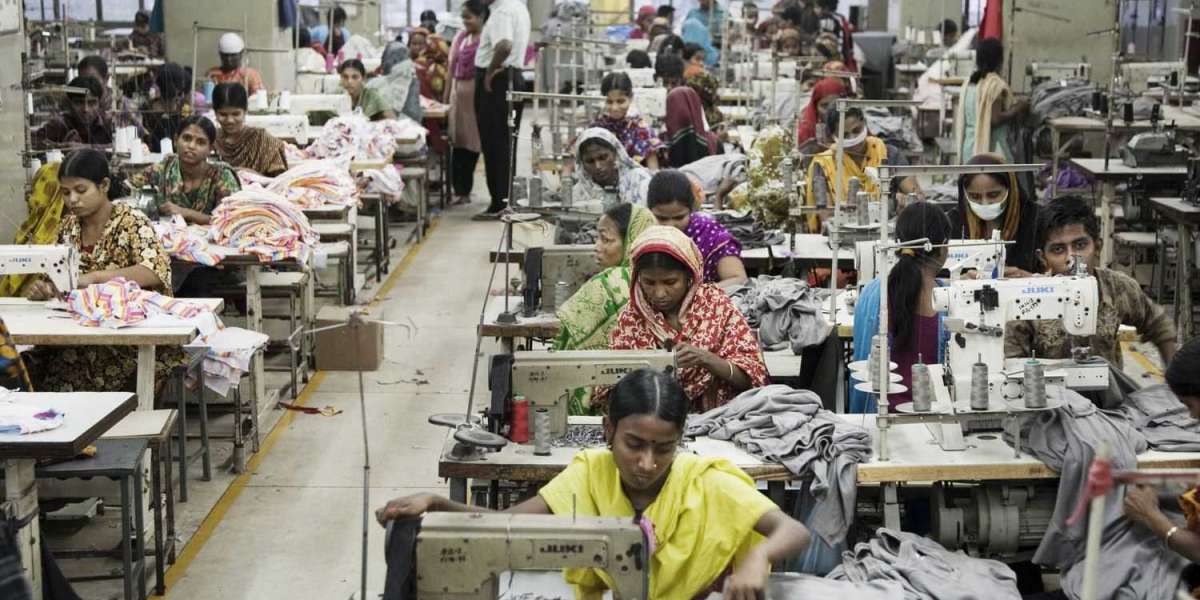They were widely used even in highly developed countries on the dawn of rising of their economy. In today’s world, mostly poor and low-developed countries, where people are low-educated or not educated at all, use sweatshop production. The major part of the world considers that such factories are too dangerous for people who work there. However, a very big part of population of poor countries wants to work in sweatshops. The article of Nicholas Kristof called “Where Sweatshops Are a Dream” is a direct evidence of these words. Sweatshops are definitely good for people who work in there.
As far as we know, influential people all over the world, in their most part, want to stop exploitation of those in sweatshops. The modern stage of civilization development is connected with a new view of the labor force as one of the key resources in the economy. It is evidenced by the growing role of the human factor in the technological stage of the scientific revolution when there is a direct dependence of the results of production on the quality, motivation, and character of the use of the workforce as a whole and the individual workers in particular. The increasing role of the human factor in the modern production is confirmed by the results of economic research by leading scientists of the world as it is described in one of the economics essay topics. In new and more effective organizational conditions, a combination of labor and workplaces, the inclusion in the innovative production process of the creative potential of workers, the training and retraining of personnel, the solution of workers social protection problems, etc. take place. The labor market becomes the most important link in the national and world market civilization; it forms the labor resources of the creative type that ensure the daily evolution of society. Labor, the ability of a person to work combining her needs, physical intellectual and organizational abilities, the acquisition of skills and experience that are used in the production of material goods and the provision of services. Labor is a component of the human personality with its inherent consciousness, spiritual values, etc. Labor develops in the process of labor activity (where a person changes his own nature, partially embodies his conscious goal, improves his labor skills, acquires production experience, accumulates technical and industrial knowledge, and receives education and qualification). However, there can be no question of any prosperity if the questions of the level of payment for workers, and creating goods are not adequately addressed in market conditions. In economically developed countries, high living standards have been formed. Their achievements are provided mainly by income from employment, and this is an important motive for activating the population's behavior in the labor market. There is a social structure with the dominance of the middle class and a very moderate level of the population stratification.
The current stage of civilization fundamentally changed the understanding of the drivers of economic competitiveness, the co-relation of various factors, as well as the role and place of human civilization progress. The experience of developed countries and, even more, countries that have made an economic spurt highlights a decisive meaning of human capital, the labor force, and motivation of effective work. This new concept focuses on the primacy of human development that has changed the outdated one being the driving force which recognized the accumulation of material wealth. Accordingly, the criteria for competitiveness changed too. Advanced countries went from price criterion to the criterion of quality, and that quality (goods, services, resources) started to determine the success of development itself. Nevertheless, a care about sweatshop workers which highly developed countries show seems to be fake because it is not profitable to them. They make an accent on quality nowadays, but who will refuse to have products of very low price?
Some countries now follow economic doctrines that are based not on the principles of high quality, but low cost (raw materials, products, technology, and workforce). They are more likely to use sweatshops, which produce very cheap products that do not excel by high quality. This approach, of course, brings success even today and is characteristic of Asian countries (India, China, Korea, and Vietnam). The result of its implementation is the formation of a social structure that is fundamentally different from the structure of the countries with better economic development. Instead of the dominance of the middle class and a moderate level of stratification, they have a polarized society with a high proportion of poor people. It is important that the general low standard of living makes the population suffer. People in sweatshops have to work in very bad conditions just to survive. ““I’d love to get a job in a factory,” said Pim Srey Rath, a 19-year-old woman scavenging for plastic. “At least that work is in the shade. Here is where it’s hot.”” (Kristof). Considering all of the above, we can definitely claim that sweatshops are very important in poor countries as they can provide the most favorable conditions of work.
To conclude, nowadays sweatshops are more good than bad for their workers. As it was mentioned above, the population of poor countries is very low-educated. That is the main reason why most people living there are involved into hard physical work. People in highly developed countries are seriously worried with this fact and try to deal with such injustice. Their economical positions allow at least reducing a number of such factories. Nevertheless, sweatshop workers are not very thrilled with such care. People there do not want to lose their job in sweatshops because other jobs are even worse. This fact emphasizes on the great importance of the argument that sweatshops are good for people who work there. Of course, the question of importance of sweatshops needs further researches. It is possible to do when talking to more workers, analyzing their words, and, of course, studying the works of other people on this topic.







